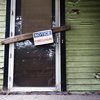Are Canadians Struggling to Pay Mortgages?

Canadian homeowners are encountering increasing uncertainty from surging interest rates, along with rising inflation and stagnant wage patterns in their financial situation. More Canadian borrowers encounter difficulties paying their mortgages, resulting in both rising numbers of mortgage deferrals and increased default concerns. Many people who dream of owning a home discover that homeownership no longer leads to stability because it results in notable financial distress.
Current policymakers alongside financial institutions as well as homeowners need to understand how Canadian mortgage conditions shift because of changing consumer habits and emerging risks.
What's Happening Now and What to Expect?
Mortgage conditions in Canada experienced profound changes during the recent period. Practitioners who secured low mortgage rates during the pandemic now experience mortgage expense surges between 30% and 50% because of increasing interest rates. The Bank of Canada indicates that 45 percent of existing mortgages must undergo renewal from 2026 through to 2026 while receiving new rates that are substantially increased.
Select research from Q1 2025 shows that “very concerned” mortgage holders reached 17%, while this figure doubled since 2022. According to the Canadian Mortgage and Housing Corporation (CMHC) mortgage deferrals rose by 13% compared to last year and Toronto, Vancouver, and Montreal led the requests for deferrals .
Home borrowing difficulties face by Canadians are increasing while more people in different regions state they cannot afford mortgage payments. Canadian house prices continue to rise yet the surge in grocery and gas and rent expenses causes people to struggle with their entire financial stability rather than just mortgage payments.
What Will Happen When People Need to Renew Their Mortgages?
Mortgage renewals will become the primary issue that will affect the market. Those borrowers who obtained ultra-low fixed rates during the pandemic now must renew their mortgages at rates reaching 5.75% and above. A $600,000 mortgage can produce monthly payments between $900 and $1.200 additional dollars based on amortization duration. Homeowners with restricted choices are facing refinancing under unfriendly conditions, longer loan terms, or seeking a delay in payment. The experience of financial strain becomes immediately obvious to everyone.
The current economic situation forces families to choose between several destructive options, including minimizing non-essential expenses through increased savings for their retirement or making their homes smaller. Youthful homeowners who live in cities face diminished net worth capacity and postponed wealth accumulation because housing costs have risen above expectations. The renewal process proves more complicated than in past years because lenders have become stricter in their lending conditions.
“ Our client base reveals a sharp increase in customers who experience immense surprise when their renewal payments exceed original expectations. The unexpected level of payment changes has become too much for families to handle because they lacked budgetary options.”
— Yen Nguyen , Mortgage Agent Level 2 at Clover Mortgage
Will Canadians Default on Their Payments?
The possibility of default payments continues to increase. Desjardins Economics predicts Canadian mortgage delinquencies will reach twice their current rate below 0.5% before the end of 2025.
The percentage of “house poor” households continues to rise as a major issue. According to StatCan research from 202,4 homeowners within the 31% group spend over 35% of their income on housing costs, which exposes them to loan default risks from financial strain.
Most defaults develop over time but do not occur instantly. The process begins with neglected credit card payments, as well as delayed utility bills, and reaching the maximum credit limit. Mortgage payment problems serve as the last indication of a more extensive financial collapse.
Case Study: Mississauga Townhouse Owner
Michael, a 34-year-old IT Consultant from Mississauga, purchased his townhouse in 2021 through an with a mortgage of $785,000 at 1.65% variable rate and $2,200 monthly payments. Since multiple Bank of Canada rate increases brought his interest rate to 5.5% or above, his payments surged past $3,100, which became almost 50% of his household income. The rising costs of living forced Michael and his partner to exhaust their emergency savings fund to survive.
The long-term interest expenses during deferral scared them away from this option. The decision to sell their house presented two major challenges which included penalties for breaking the mortgage and decreasing property market value. They adjusted their mortgage amortization schedule by extending it by five years and thereby lowered their monthly payments to $2,550 which stood as a viable amount for their situation. A similar debt overload affects an increasing the number of Canadians who struggle to pay their mortgage.
Below is a breakdown of how interest rate hikes are affecting mortgage affordability:
| Year | Average Variable Rate (%) | Monthly Payment on $600,000 Loan | Deferral Requests (% of Mortgages) |
|---|---|---|---|
| 2021 | 1.80% | $2,120 | 2.1% |
| 2023 | 4.25% | $2,930 | 7.9% |
| 2025 | 5.80% (projected) | $3,450 | 13.4% |
Conclusion
The Canadian housing market is expected to reach critical levels throughout 2025 and possibly through next year. Homebuyers throughout Canada face growing mortgage payment issues because of climbing deferral requests and all-time high mortgage renewal rates, along with an expanding number of homeowners who have financial strain on their properties. Homeowners must make informed decisions regarding risks while the state implements policies together with adjustments of interest rates. To find success in this process, people need financial literacy, strong mortgage counseling , and realistic budgets.
Contact us at Clover Mortgage today to best tackle your problems, whether that be renewing your mortgage or making payments.
FAQs
Are people defaulting on their mortgages in Canada?
While the official delinquency rate remains low, mortgage stress is increasing. Analysis anticipates a rise in defaults, especially after widespread mortgage renewals in 2025–2026.
What percentage of Canadians can't afford a house?
As of 2024, more than 60% of Canadians believe they cannot afford to enter the housing market, particularly in major cities . Affordability challenges are driven by high home prices and rising borrowing costs.
Are people struggling to pay their mortgage?
Yes. Many Canadians are actively struggling to make mortgage payments, with deferral requests and refinancing inquiries rising sharply across all provinces.
Are Canadians struggling to pay bills?
Yes. In addition to mortgages, many households are behind on credit card payments, utilities, and other recurring expenses. Inflationary pressures continue to erode financial stability for a growing number of Canadians.





